
GEMATOLOGIYA I TRANSFUZIOLOGIYA
Scope & Guideline
Unveiling Breakthroughs in Hematology and Transfusion
Introduction
Aims and Scopes
- Clinical and Experimental Hematology:
The journal publishes research on various hematological conditions, including leukemias, lymphomas, and other blood disorders, highlighting both clinical outcomes and experimental findings. - Transfusion Medicine and Blood Safety:
Focuses on the safety and efficacy of blood transfusions, including studies on donor screening, pathogen reduction technologies, and transfusion-related complications. - Pediatric Hematology:
Emphasizes the unique aspects of hematological diseases in children, including treatment protocols and outcomes in pediatric populations. - Molecular and Genetic Research:
Includes studies on genetic mutations, molecular markers, and their implications in hematological disorders, contributing to personalized medicine approaches. - Multidisciplinary Approaches to Hematology:
Encourages research that integrates various medical fields, such as oncology, immunology, and infectious diseases, to address the complexities of hematological conditions. - Guidelines and Clinical Protocols:
Provides a platform for the dissemination of clinical guidelines and protocols relevant to the diagnosis and management of hematological disorders.
Trending and Emerging
- Impact of COVID-19 on Hematology:
Research exploring the effects of COVID-19 on patients with hematological disorders, as well as the implications for treatment and management during the pandemic, has surged in relevance. - Innovative Treatment Protocols:
A noticeable increase in studies detailing novel treatment protocols, particularly involving targeted therapies and immunotherapies for various blood cancers. - Transfusion-Related Complications and Management:
Heightened focus on understanding and mitigating complications arising from blood transfusions, particularly in high-risk patients. - Long-term Outcomes of Hematological Treatments:
Emerging interest in studies that analyze long-term outcomes and survivorship in patients treated for hematological malignancies, emphasizing quality of life and late effects. - Genetic and Molecular Profiling in Hematology:
Growing trend towards the use of genetic and molecular profiling to inform treatment decisions and predict outcomes in hematological diseases.
Declining or Waning
- Historical Perspectives on Hematology:
Publications focusing on historical accounts and perspectives, such as the evolution of hematology practice or historical case studies, have seen a marked decrease. - Basic Science Research without Clinical Relevance:
There is a diminishing interest in purely laboratory-based studies that do not translate into clinical applications or impact patient care. - General Reviews of Hematology:
Broad review articles that do not focus on specific advancements or updates in the field are less frequently published, as the journal shifts towards more focused and actionable research. - Epidemiological Studies of Rare Conditions:
While still relevant, studies that focus on rare hematological conditions without a strong clinical or therapeutic focus are becoming less common in favor of more prevalent conditions.
Similar Journals
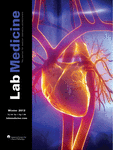
AMERICAN JOURNAL OF CLINICAL PATHOLOGY
Catalyzing Innovations in Pathology and Forensic MedicineThe American Journal of Clinical Pathology, published by Oxford University Press Inc, stands as a vital resource in the fields of pathology and clinical medicine. With a rich history dating back to 1945 and an impressive impact factor reflected in its Q1 ranking in Pathology and Forensic Medicine, this journal serves as a cornerstone for researchers and professionals seeking to advance their knowledge and practice. Covering a breadth of topics within the discipline, it is recognized in 2023 as ranked #24 out of 208 in its category, highlighting its esteemed reputation within the scientific community. Although the journal does not currently offer open access, its rigorous peer-reviewed articles and cutting-edge research make it an essential addition to any academic or clinical library. The ISSN for print version is 0002-9173, with an E-ISSN of 1943-7722 available for digital access. Researchers, students, and practitioners alike will benefit from its comprehensive scope and commitment to disseminating high-quality scientific inquiry.
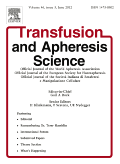
TRANSFUSION AND APHERESIS SCIENCE
Bridging Theory and Practice in Transfusion and ApheresisTRANSFUSION AND APHERESIS SCIENCE, published by Pergamon-Elsevier Science Ltd, serves as a pivotal platform for researchers and practitioners in the fields of hematology, transfusion medicine, and apheresis. With an ISSN of 1473-0502 and an E-ISSN of 1878-1683, this peer-reviewed journal boasts a respectable Q3 ranking in the Hematology category as of 2023, positioning it within the 45th percentile among its counterparts. Operating from the United Kingdom, it provides comprehensive insights into the latest advancements and methodologies in transfusion practices and apheresis technology, crucial for enhancing patient care and therapeutic strategies. The journal's scope, covering key developments from 1996 to 2024, allows for a deep exploration of historical and emerging trends within the discipline. Moreover, its open access options facilitate widespread dissemination of research findings, fostering collaboration and innovation in the scientific community. For those dedicated to advancing knowledge in hematology, TRANSFUSION AND APHERESIS SCIENCE represents an essential resource, bridging theory and practice in this vital area of healthcare.
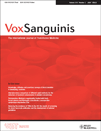
VOX SANGUINIS
Advancing Hematology Through Innovative ResearchVOX SANGUINIS is a distinguished peer-reviewed journal in the fields of Hematology and Medicine, published by Wiley, a leading academic publisher based in the United Kingdom. With a rich history dating back to its inception in 1952, this journal has consistently provided a platform for innovative research and insightful reviews, advancing the understanding of blood-related disorders and therapies. As evidenced by its robust performance—ranking #57 out of 137 in Scopus for Medicine in Hematology and holding a Q2 classification in both Hematology and miscellaneous Medicine categories—VOX SANGUINIS is recognized for its significant contributions to the scientific community. This journal serves as a vital resource for researchers, professionals, and students alike, fostering knowledge exchange and collaboration within the field. With its ongoing commitment to quality and integrity, VOX SANGUINIS continues to shape the future of hematological research well into 2024 and beyond.
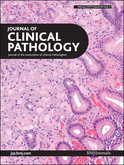
JOURNAL OF CLINICAL PATHOLOGY
Connecting Evidence to Effective TreatmentJOURNAL OF CLINICAL PATHOLOGY, published by BMJ PUBLISHING GROUP, stands at the forefront of advancements in the field of clinical pathology, offering a platform for groundbreaking research and insights from 1948 to the present. With an impressive impact factor and categorized as Q1 in both Medicine (miscellaneous) and Pathology and Forensic Medicine for 2023, the journal holds a distinguished position in the academic community, ranking 22nd out of 208 journals in its category on Scopus and representing the 89th percentile. While the journal does not currently offer open access, it remains a vital resource for researchers, healthcare professionals, and students seeking to stay current with innovative methodologies, clinical techniques, and diagnostic advancements. Located in London, United Kingdom, the journal aims to bridge the gap between laboratory findings and clinical practice, emphasizing the importance of evidence-based pathology in improving patient care and treatment outcomes. Engage with the JOURNAL OF CLINICAL PATHOLOGY to enhance your understanding and contribute to the evolving landscape of clinical pathology research.
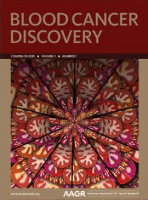
Blood Cancer Discovery
Illuminating the Path to Understanding Blood MalignanciesBlood Cancer Discovery is a premier academic journal published by the American Association for Cancer Research, dedicated to advancing the understanding of hematologic malignancies through cutting-edge research in the fields of oncology, biochemistry, and molecular biology. With an impressive impact factor and recognition as a Q1 journal across multiple disciplines, including cancer research and hematology, Blood Cancer Discovery serves as an essential platform for scholars and practitioners alike, facilitating impactful discourse and dissemination of pioneering findings. This open-access journal, established within the vibrant academic landscape of the United States, aims to bridge gaps in research and foster collaborations to ultimately enhance patient outcomes. Its Scopus rankings demonstrate its vital role in the critical advancement of cancer research and therapeutic development. By inviting contributions from a diverse range of disciplines, Blood Cancer Discovery is poised to drive innovation and inspire future advancements in understanding blood cancers.
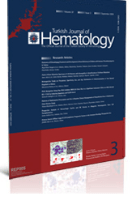
Turkish Journal of Hematology
Fostering collaboration in hematology research and clinical practice.Turkish Journal of Hematology is an esteemed publication dedicated to advancing the field of hematology, producing influential research since its inception in 1999 under the auspices of GALENOS PUBL HOUSE. With an Open Access model, it facilitates widespread dissemination of knowledge, allowing researchers, clinicians, and students to stay abreast of the latest developments in blood disorders and treatments. With an ISSN of 1300-7777 and an E-ISSN of 1308-5263, the journal holds a commendable position in the academic community, evidenced by its 2023 Q3 ranking within the hematology category and its standing at #80 out of 137 in the Scopus database, placing it in the 41st percentile. Covering a wide scope of topics within hematology, this journal serves as a critical resource for disseminating innovative research and clinical practices pertinent to the ongoing challenges faced in this vital area of medicine. With its continuous publication until 2024, Turkish Journal of Hematology remains a beacon for enhancing the understanding and treatment of hematological conditions within the Turkish and global medical communities.

Journal of Hematology
Exploring the Depths of Hematological ResearchThe Journal of Hematology, published by ELMER PRESS INC, serves as a pivotal platform for disseminating cutting-edge research in the field of hematology. With an ISSN of 1927-1212 and an E-ISSN of 1927-1220, this journal is committed to advancing scientific knowledge and clinical practice through high-quality peer-reviewed articles encompassing all aspects of blood disorders, from basic science to health policy implications. While the journal currently operates under a traditional access model, it nonetheless prioritizes the rapid publication of significant findings, ensuring that researchers, clinicians, and students have timely access to the latest advancements in hematological research. Positioned to bridge gaps in knowledge and foster collaboration among scholars worldwide, the Journal of Hematology is an essential resource for anyone invested in this vital area of medicine.

Indian Journal of Hematology and Blood Transfusion
Empowering Healthcare Through Cutting-edge Hematology ResearchIndian Journal of Hematology and Blood Transfusion, published by SPRINGER INDIA, serves as a leading platform for disseminating original research, reviews, and case studies in the field of hematology. With an ISSN of 0971-4502 and E-ISSN 0974-0449, this journal has been instrumental in advancing knowledge from 2000 to 2024, providing insights into critical issues surrounding blood disorders and transfusion practices. Currently ranked in the Q3 category for Hematology for 2023, it reflects a commitment to high-quality scientific content amidst a competitive landscape where it ranks 97/137 in Scopus for Medicine - Hematology, placing it in the 29th percentile of its peers. The journal primarily addresses a diverse readership, including researchers, healthcare professionals, and students, aiming to foster innovation and collaboration within the field. Although it operates under a subscription model, access options for individual articles and institutional subscriptions ensure that valuable research is disseminated widely to enhance medical practice and education in hematology.

INTERNATIONAL JOURNAL OF HEMATOLOGY
Elevating Hematology Research to New HeightsThe INTERNATIONAL JOURNAL OF HEMATOLOGY, published by SPRINGER JAPAN KK, serves as a critical platform for advancing research in the field of hematology. With a prestigious history spanning over three decades from 1991 to 2024, this journal is recognized for its impactful contributions, evidenced by its Q2 category ranking in Hematology for 2023, and its notable position at rank #71 out of 137 in the Scopus Medicine Hematology category. Researchers and professionals within the hematology community benefit from the journal's rigorous peer-reviewed articles that cover a wide range of topics, including clinical studies, basic research, and novel therapeutic strategies. Though currently non-open access, it provides essential insights and findings to an audience passionate about the latest advancements in blood disorders and treatments. Situated in Japan, the journal not only showcases high-quality research but also fosters a global exchange of knowledge in hematology, making it a significant resource for scholars, practitioners, and students alike.
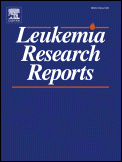
Leukemia Research Reports
Connecting researchers to combat leukemia.Leukemia Research Reports, published by Elsevier Advanced Technology, is a prominent open-access journal dedicated to the latest advancements in the field of hematology and oncology. Since its launch in 2012, this journal has been a vital resource for researchers, healthcare professionals, and students aiming to disseminate and access high-quality research articles focused on various aspects of leukemia and related blood disorders. With an impact factor indicative of its significance in the field, Leukemia Research Reports currently holds a Q3 quartile ranking in both Hematology and Oncology, and is included in key databases such as Scopus. The journal not only embraces a commitment to open access, ensuring that research is freely available, but also actively promotes collaborations that strive to enhance our understanding and treatment of leukemia. Based in the United Kingdom, this journal continues to play a crucial role in fostering innovation and knowledge sharing within the medical community.